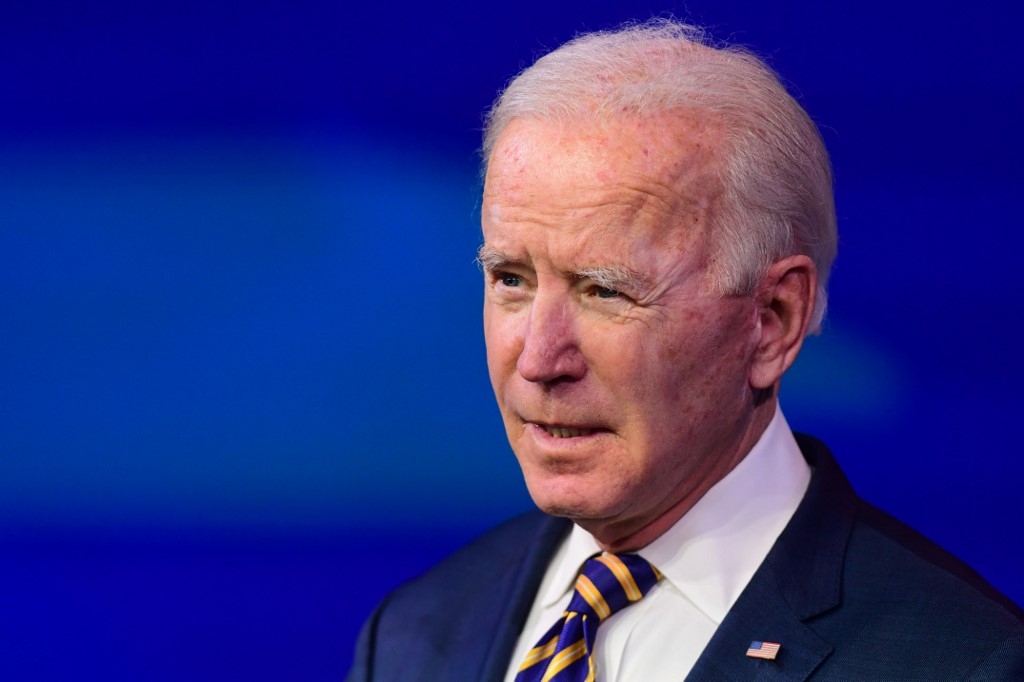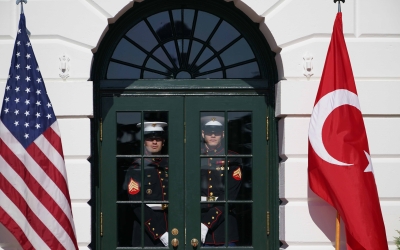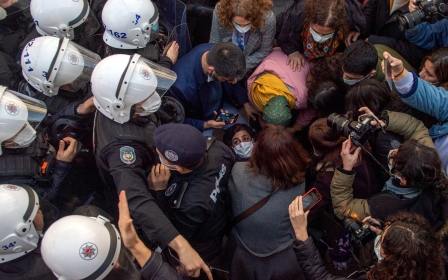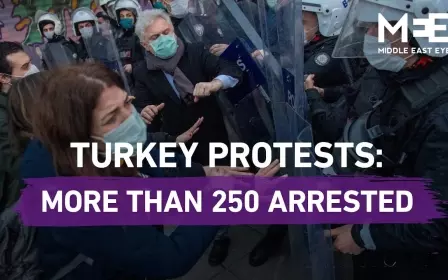US senators urge Biden to press Turkey on human rights and 'combative' foreign policy

A bipartisan majority of the US Senate called on President Joe Biden to push Turkey to do more to protect human rights and end Ankara's "belligerent and combative" foreign policy.
Fifty-four senators signed a letter sent to Biden on Tuesday, which accused Turkish President Recep Tayyip Erdogan of marginalising domestic opposition, silencing critical media, jailing journalists and purging independent judges.
"Turkish President Recep Tayyip Erdogan has taken the country down an increasingly authoritarian path. He has systematically marginalized domestic opposition, silenced or coopted critical media outlets, purged independent judges and replaced them with party loyalists and jailed scores of journalists," the letter said.
"We urge you to emphasize to President Erdogan and his administration that they should immediately end their crackdown on dissent at home and abroad, release political prisoners and prisoners of conscience, and reverse their authoritarian course."
The letter was led by Democratic Senator Ron Wyden and Republican Senator Marco Rubio, symbolising a bipartisan rebuke of Ankara, which is Washington's Nato ally.
The senators also accused Erdogan of adopting a "combative" foreign policy and attacking US-backed forces in Syria.
The senators were referring to Turkey's 2019 offensive in northern Syria which saw Ankara seize control of a 120km strip of land from groups linked to the Kurdish People's Protection Units (YPG) militia. Thousands of people were displaced during the operation with accusations of extrajudicial killings by Turkey-backed forces.
Ankara sees the YPG as an extension of the outlawed Kurdistan Workers' Party (PKK), which has waged an insurgency against the Turkish state since 1984. The PKK is blacklisted as a terror group by Ankara and its western allies.
"President Erdogan's foreign policy has grown more belligerent and combative over time," the senators wrote.
"In recent years, he brazenly attacked U.S.-backed Kurds fighting ISIS in Syria, he purchased Russian air defense systems despite warnings that they were incompatible with U.S. technology, and he encouraged Azerbaijan to use violence to settle a territorial dispute with Armenia," the letter said.
'A higher standard'
Prior to Biden's inauguration, the then-president-elect had snubbed his Turkish counterpart and did not respond to multiple requests for a call, suggesting a worsening of relations.
While the two leaders have still yet to speak over the phone, National Security Adviser Jake Sullivan spoke with Turkey's presidential spokesperson Ibrahim Kalin last week in a call that was described by one Turkish official as "positive".
The US and Turkey had a tit-for-tat after Turkish Interior Minister Suleyman Soylu was reported to have accused Washington of being behind a failed coup attempt in 2016.
The US denied the accusation, calling it "wholly false".
Since the failed coup, Turkey has detained some 292,000 people over suspected links to Fethullah Gulen, a former ally of President Recep Tayyip Erdogan, and has suspended or sacked more than 150,000 civil servants.
Hundreds of media outlets have been shut and dozens of opposition lawmakers have been jailed.
Erdogan has for years accused Gulen's supporters of establishing a "parallel state" by infiltrating the police, judiciary, military and other state institutions. Gulen has lived in self-imposed exile in Pennsylvania since 1999. He denies any involvement in the attempted coup.
"Turkey remains an important ally in a significant region of the world, and it is precisely for this reason that we write you today," Tuesday's letter said.
"We believe that the US must hold allies and partners to a higher standard and speak frankly with them about issues of human rights and democratic backsliding."
Middle East Eye delivers independent and unrivalled coverage and analysis of the Middle East, North Africa and beyond. To learn more about republishing this content and the associated fees, please fill out this form. More about MEE can be found here.





